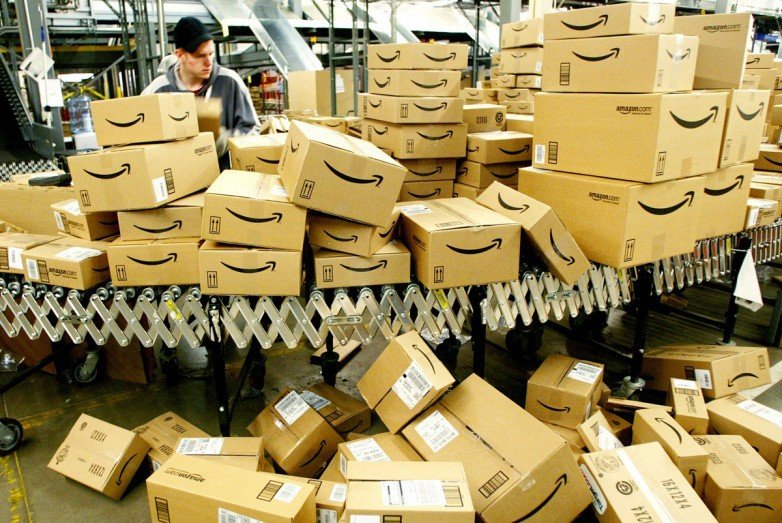
Welcome to Ask Jerry, where we talk about any and all the questions you might have about the smart things in your life. I'm Jerry, and I have spent the better part of my life working with tech. I have a background in engineering and R&D and have been covering Android and Google for the past 15 years.

Ask Jerry is a column where we answer your burning Android/tech questions with the help of long-time Android Central editor Jerry Hildenbrand.
I'm also really good at researching data about everything — that's a big part of our job here at Android Central — and I love to help people (another big part of our job!). If you have questions about your tech, I'd love to talk about them.
Email me at askjerryac@gmail.com, and I'll try to get things sorted out. You can remain anonymous if you like, and we promise we're not sharing anything we don't cover here.
I look forward to hearing from you!
How are the new Tariffs going to affect smartphone prices in the U.S.?

Mark asks:
The Trump administration has said they will be new tariffs placed on goods and materials from China and he has plans to halt some trade exemptions. Since most phones are made from Chinese sourced parts, how is this going to affect prices? Should we be worried?
Hi Mark! this is an excellent and timely question that I think a lot of people have, even if they don't understand how any of it works.
I'm no economist, but I know a bit about manufacturing and have looked into this myself; I'm concerned about it, too. The quick answer for anyone who doesn't want to read the whole article: tariffs and other trade restrictions will make prices go up. It won't be some sort of doomsday situation where even a basic phone costs thousands of dollars, but the companies that make phones will have increased costs and likely have to deal with new restrictions placed by China in retaliation. All of these increases (and a bit more) will be passed on to customers.
What is a tariff?

To try and understand what might happen, you need to know what a tariff is. It's a tax placed on goods that are imported from other countries. Companies that send products to the United States pay these taxes to the government before their goods are allowed into the country.
If an overseas company sends goods that are valued at $10 each, they would be charged $1 per item with a 10% tariff. Usually, these fees are passed along to the company buying the imported products, so instead of paying $10 each, that company now pays $11 each.
There have always been tariffs and levies in place, and you've always been paying for them because they are built into the cost of a product. When those tariffs are increased, the fees will trickle down to you, and you'll pay more.
Most countries have what's known as a De Minimis Value when it comes to imported goods. De Minimis is a Latin phrase that means something is so insignificant that it can be ignored, and a country decides what that value is.
In the U.S., the De Minimis Value threshold is $800. In Canada, it's USD 20. In Australia, it's USD 1,000. It can vary a lot, and it's a way for countries to help balance trading fees with consumer costs. It also means most phones built and assembled in China don't have extra duty fees because their original value is far less than USD 800.
The current U.S. administration is considering nullifying the current De Minimis exemptions, so a 10% tariff on all goods coming from China, even ones that were currently under $800 in value and exempt, will now be levied. This would be a direct-to-consumer increase on things like phones that are built in and shipped directly from China.
These costs all trickle down to the consumer, too.
Should we be worried?

I don't think this is as alarming as headlines like to make it sound. I don't think it is a smart move (did I mention that I'm not an economist?), but I can't see the sky falling and people fighting over loaves of bread in some apocalyptic nightmare scenario. The cheap consumer goods you love to buy are simply going to cost a little more.
The real impact will be on shareholders in the companies importing and selling these products. A 10% tariff on your next phone could mean you'll pay $20 more for it, but 10% of 10 million is a lot of money when it's all added up.
The initial reactions are not great — stock prices are falling and the market is down over 400 points (as of last week) over fears and anxiety about the proposed trade law changes. It could steady itself, or it could get worse. One certain thing is that the executives from these companies have a lot to say about it and are in positions where their voices make a difference.
You and I complain that a new phone costs a little more. The execs at Qualcomm or Apple complain too, but the difference is that their complaints are to people who can make changes. Those government officials will listen, too. They love having big tech companies in their area and will do plenty of favors and pull a lot of strings to ensure the tech giants get what they want. Is it fair? Nope. It's simply the reality of how U.S. capitalism works.
These tech giants — even companies like Samsung, which don't import as many things from China — will react if when anything that affects their bottom line happens. They know there is a limit to how much they can increase consumer prices, and when it is reached, any other fees and costs of doing business come from their coffers.
Love it or hate it, big business controls the economy in the United States and will look out for its best interests. This time, one of their interests (lower costs) aligns with ours.
One last thing I want to mention — you might already be seeing companies talk about how they have to increase prices because of these new trade laws. Remember that they haven't paid anything extra yet and are raising prices on goods they already have.







